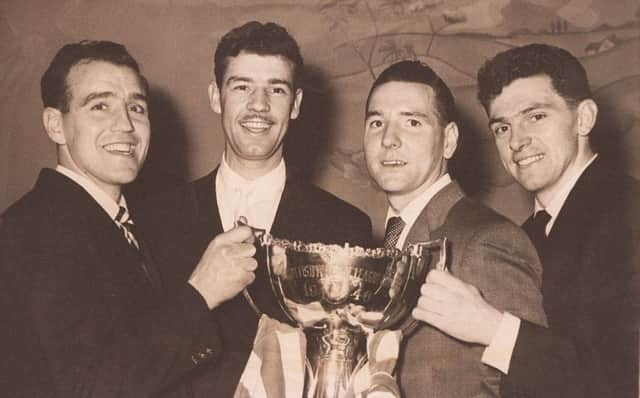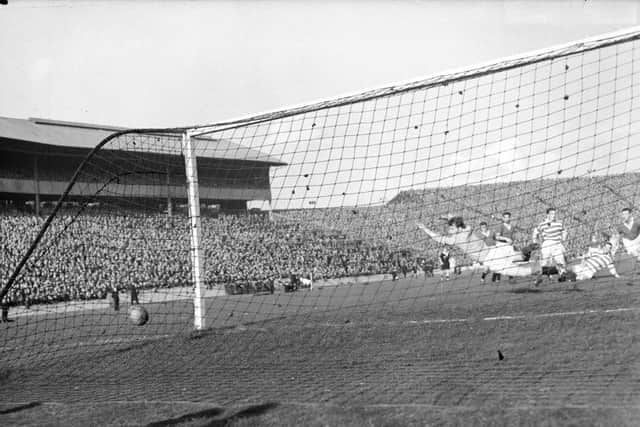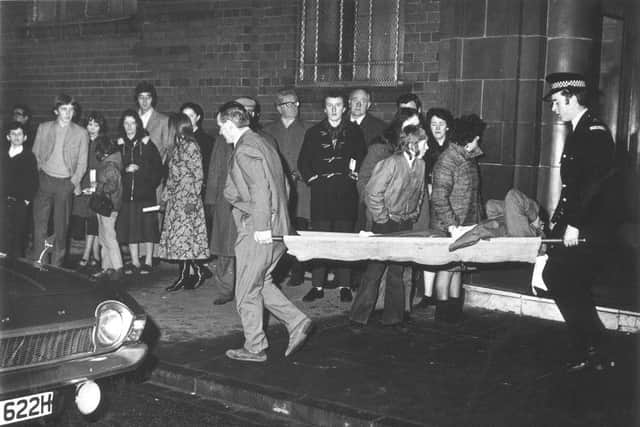New book tells story of Celtic legend Neil Mochan


Neil Mochan, known to friends and fans alike as Neilly, signed for the Hoops in 1953 and scored more than 100 goals in a seven year playing stint in the east end of Glasgow.
He would go on to serve Dundee United and briefly Raith Rovers with distinction before returning to Celtic as head trainer under Jock Stein in time to experience the glory days of nine-in-a-row title wins and the European Cup triumph of 1967.
Advertisement
Hide AdAdvertisement
Hide AdMochan remained on staff long after Stein left, switching to a non-coaching role in 1978 with the appointment of Billy McNeil as manager.


His remarkable service is remembered in Celtic’s Smiler: The Neil Mochan Story, a new biography by Paul Dykes.
“His life has never been covered in any great depth, which is strange as he was the coach of the Lisbon Lions,” said Dykes.
“They used to call them trainers back then, and a lot of his role was looking after the players’ fitness, but he was coaching the Lions.
“Because of the success of Jock Stein people like Neilly Mochan and (assistant manager) Sean Fallon were left in the shade. The three of them were ex-Celtic players from the 1950s and they all played a massive role in the club’s subsequent success. Stein was a footballing genius, no one is going to dispute that, but Neilly played a big part, as did Sean.”


Mochan was born in Carron, near Falkirk, in 1927 and was first scouted while playing for local junior side Dunipace Thistle. He signed for Morton in 1944, where he scored a remarkable 57 goals in 82 appearances, before moving south to Middlesbrough.
He was less prolific on Teeside, and returned north to join Jimmy McGrory’s then struggling Celtic side in 1953. The Hoops were enduring a fallow period prior to Mochan’s arrival, at a time when Rangers and Hibernian were dominating the league.
His impact was immediate - scoring the goals that beat Arsenal then Hibs to land Celtic the Coronation Cup, a well-publicised pre-season tournament involving four of the best clubs from Scotland and England.
Advertisement
Hide AdAdvertisement
Hide AdCeltic went on to win the double the following season, with Mochan top goal scorer. His form earned him a Scotland call-up and he was in the squad that took part in the ill-fated 1954 World Cup campaign.
Perhaps his most famous contribution as a player was his goals in the 1957 League Cup final, when the Hoops defeated Rangers 7-1 in a game still sung about by fans.
Dykes decided to write Mochan’s story after meeting his son, Neilly junior, at the launch of his previous book on the Quality Street Gang - the late 1960s Celtic reserve side, many of whom would replace the Lisbon Lions.
After two years of writing and research, Dykes’ new book was launched at Celtic Park last week with several club legends in attendance, including Danny McGrain and Murdo Macleod.
“They adored Neilly Mochan,” said Dykes. “After McNeil took over in ‘78, Mochan’s role changed. He had always acted as kitman, but he also looked after the groundstaff boys.”
His role as kitman led him to amass an astonishing collection of continental strips, following the tradition of club kitmen exchanging jerseys before European matches.
Mochan continued to live in Camelon, a suburb of Falkirk, throughout his Celtic career. He was still employed as kitman in 1994 when he died aged 67 following a short illness.
“Neilly was present during all Celtic’s high points of the 1950s,” Dykes added. “Then from the late ‘60s, into the ‘70s and ‘80s. “I don’t think there’s any other individual in the club’s history who was involved in as many successes in one capacity or another.”